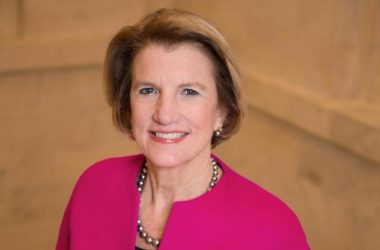By Charles McElwee
I want to share with you what I believe should be the State’s No. 1 priority for achieving a bold and comprehensive review, and possible reformation, of the State’s public school system.
It is that the West Virginia Board of Education (“State Board”), with the requested assistance of two former Governors, Gaston Caperton and Bob Wise, and others, launch a nationwide search for exemplary candidates for the office of State Superintendent of Free Schools.
The State Superintendent, employed by the State Board to serve at its will and pleasure, should, above all, have a nationwide, indeed a worldwide, knowledge of proven and innovative ideas in student-learning, in identifying, attracting and educating effective teachers, and in managing state-wide school systems.
The State Superintendent should be a respected leader, critical thinker, problem solver, good collaborator and communicator, the very traits that we want our public schools to develop in our children.
The State Board should be prepared to pay an annual salary of $300,000-400,000 for the right person, as recently enacted S.B. 359 authorizes it to do. Each of the WVU football and basketball coaches receives an annual base salary of $250,000 to entertain us. The State ought to be willing to pay more than that to the State Superintendent, the “Chief School Officer of the State,” to educate our children.
The State Superintendent, with his/her superior knowledge in such matters, should be thought of as the originator of education-reform proposals, with the assistance of the Department of Education, for a revitalized State Board, free of control by others, to originate, react to and either implement, amend, or reject as educational policy, after eliciting comments from the public.
I do not believe there is a legal or practical alternative for achieving a bold and comprehensive review, and possible reformation, of the State’s public school system as is sorely needed.
According to the Supreme Court of Appeals of West Virginia,
(1) “The determination of the educational policies of the public schools of the State is vested in The West Virginia Board of Education [under the provisions of Art. XII, § 2 of the State Constitution], and, unless unreasonable or arbitrary, its actions relating to such polices will not be controlled by the courts.”
(2) “Rule-making by the State Board of Education is within the meaning of ‘general supervision of state schools’ pursuant to art. XII, § 2 of the West Virginia Constitution, and any statutory provision that interferes with such rule-making is unconstitutional.”
(3) The State Board’s “rules have the force and effect of law.”
The Legislature’s constitutional authority with respect to the public schools is much more limited than that of the State Board, namely: to “provide, by general law, for a thorough and efficient system of free schools[]” (here, the key word is “system”), and not for a “thorough and efficient education,” as some would have the public to believe. Art. XII, §1, State Constitution could not be more plainly written in that regard.
The State Constitution does not authorize the Legislature to operate the free schools; nor does it empower the Legislature to determine the educational policies for them.
It is time to be frank: Even if the Executive and the Legislature had the authority to determine the educational policies of the public schools of the State, they simply are not sufficiently informed and motivated to undertake a much-needed bold and comprehensive review and reformation of the State’s public school system, as the experience of many past years evidences.
Because of limited knowledge or a vested interest, these policy makers, and some of our citizens, are too protective of, and attached to, the State’s antiquated Prussian-originated, rigid and compartmentalized student-learning model to do more than “patch” it here and there and then proclaim their accomplishments in having worked together.
In my view, an additional essential element or condition for improving and sustaining student achievement in our public schools is to have an informed and involved citizenry throughout the State, who will become an active and aggressive citizen constituency for a nationally-recognized quality school system.
We have no citizen constituency now and policy makers have shown no interest in developing one. Its absence was notable during the Legislature’s recent consideration of public-school education bills and during the public forums on the Education Audit.
I have the notion that there are hundreds, perhaps thousands, of bright, largely youthful citizens scattered throughout every county and metropolitan area of the State who would welcome an opportunity to become involved both politically and otherwise in improving the State’s public school system so that our kids’ academic achievement, for themselves, for their parents, and for the State, can be lifted from bottom rankings on national and international assessments.
If our citizens are not, or cannot be, enlisted in this endeavor, I have little hope that the output of our public schools in terms of measured student performance will be other than mediocre or below.
-30-
McElwee is a Charleston lawyer with the firm Robinson & McElwee PLLC. The views expressed are his own. [email protected]





